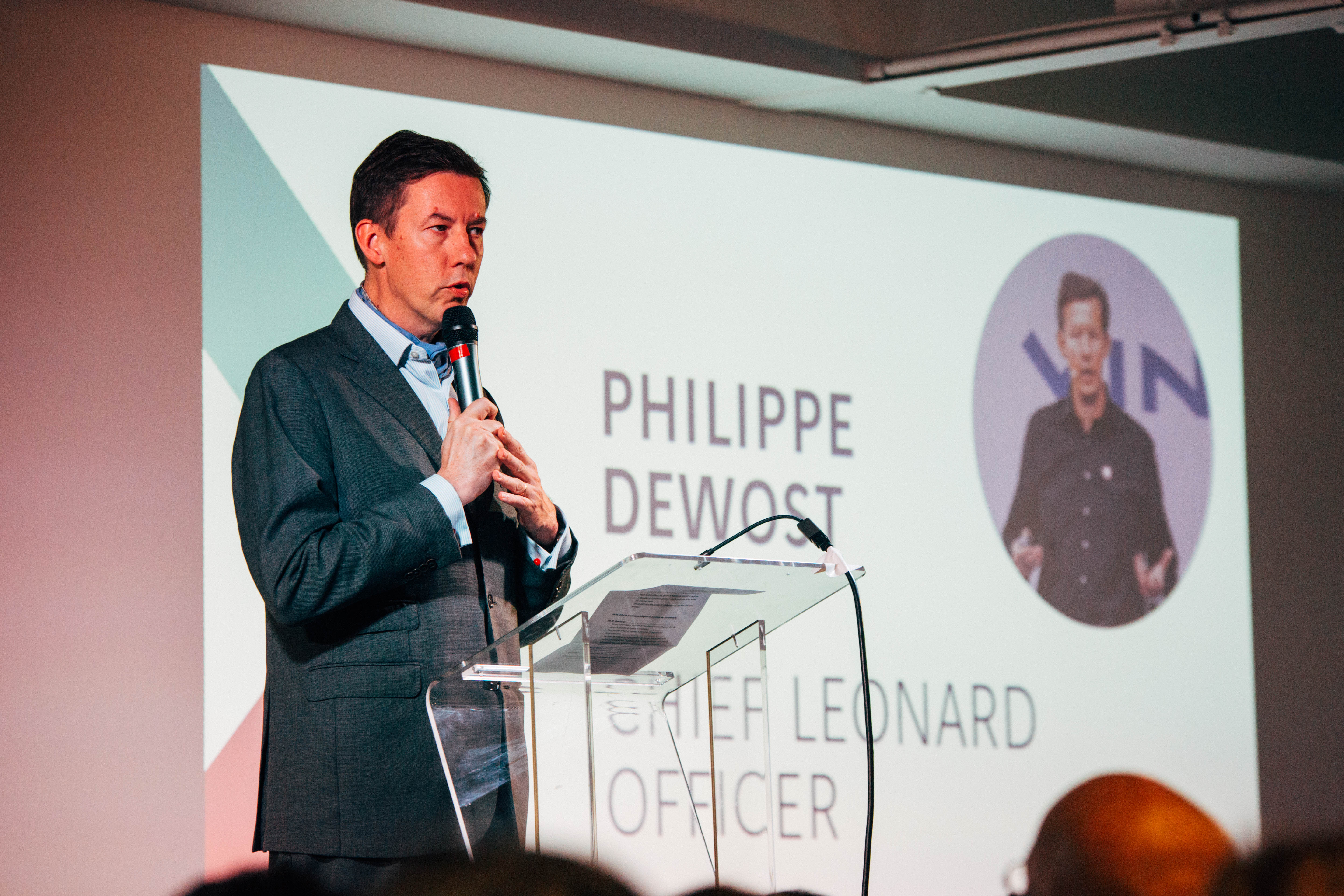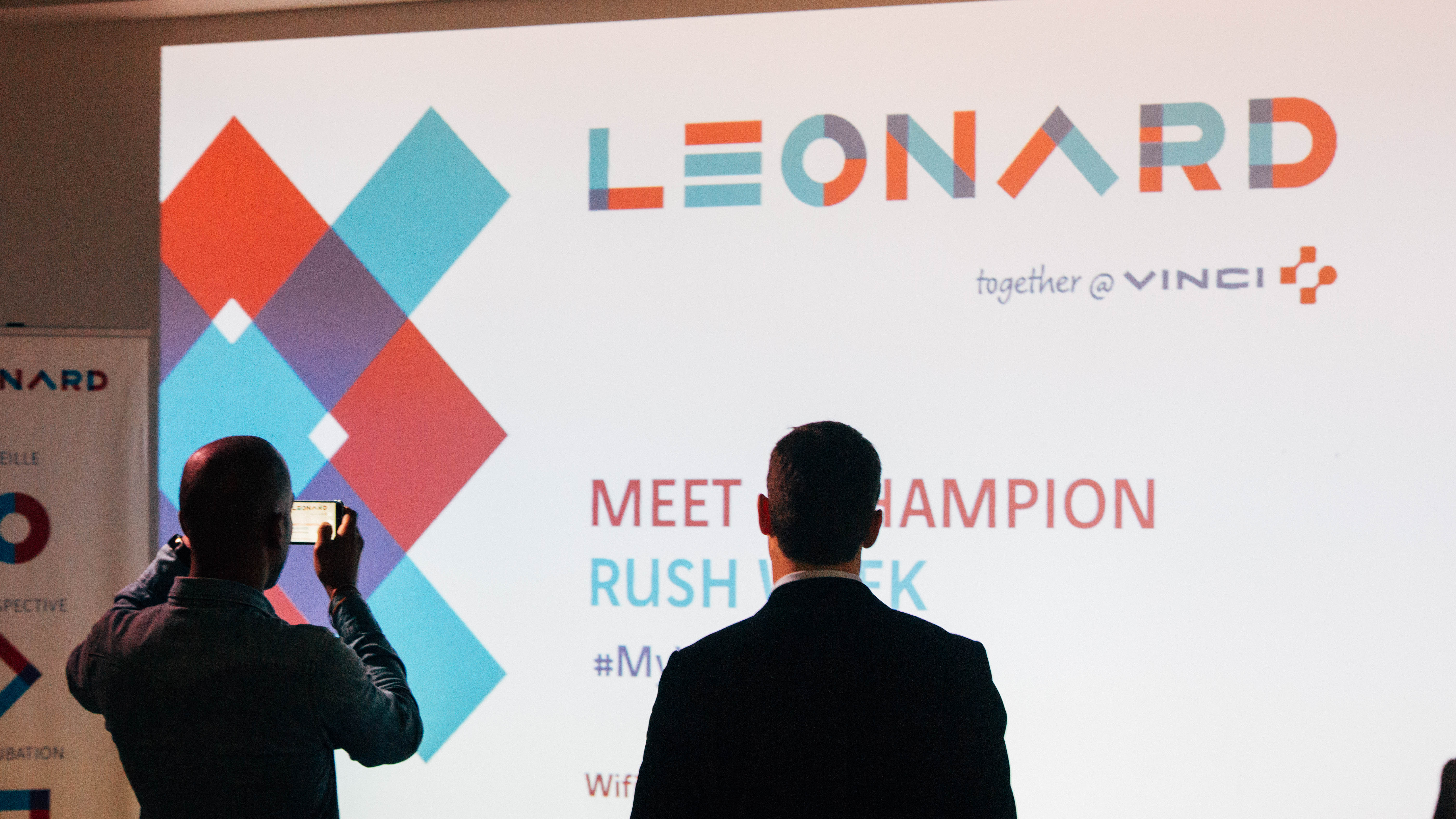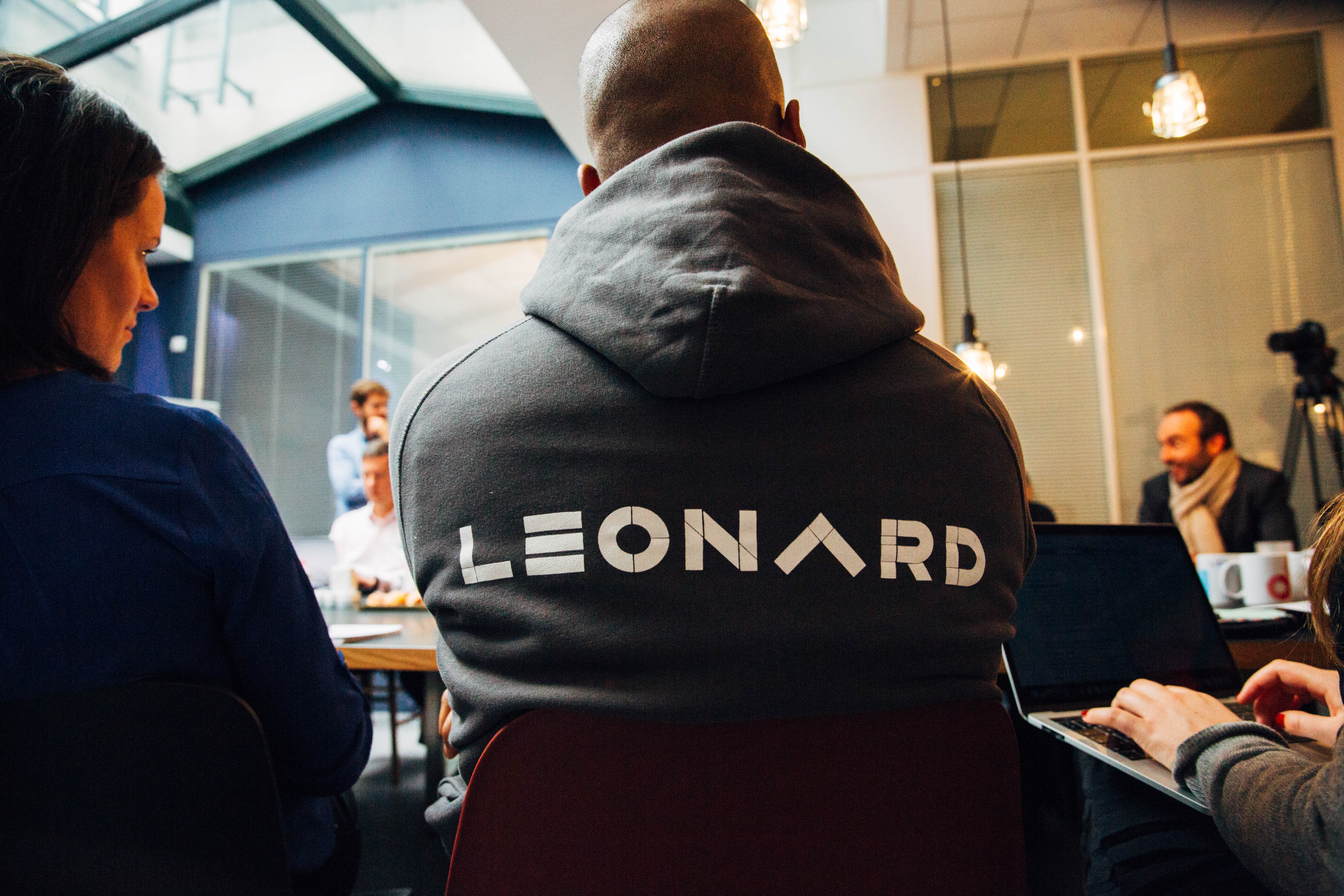“Intrapreneurship allows me to get out of my comfort zone, to move away from the things I do routinely everyday. For me, it’s a real breath of fresh air,” said Samir Bengelloun, HR Business Partner at VINCI Construction Grands Projets. This summer, together with ten other VINCI employees, he was selected to join the intrapreneur program run by Leonard, VINCI’s foresight and innovation platform. This program aims to sustain a new business idea, inspired mostly by the daily activity of intrapreneurs. The first incubation phase lasts 4 months, with a commitment by attendees to devote 20% of their work time. A key stage of the program, the “Rush Week”, was held from 13 to 16 November in Paris. Here we look back on those four days of intensive business-focused training.
Bringing together solutions and business, the challenge for intrapreneurs
“Rush Week” began at Leonard’s headquarters, near Gare de Lyon in Paris. In the presence of coaches and the entire cohort, candidates presented an initial outline of their projects. Most pitches were inexact at this stage. “I prepared my pitch on the train this morning, in 10 minutes,” said one candidate to another. Then in the early afternoon, enthusiastic intrapreneurs headed for Station F, the start-up campus created by Xavier Niel, situated near to the Leonard site.
In the “Creativity Room”, which is dedicated to brainstorming, the candidates met their coach for a “Business Canvas” workshop, during which they sketched out a synopsis of the economic model of a company. In its classic form — theorized by the Swiss researcher and entrepreneur Alexander Osterwalder — this model has nine stages: value proposition, customer segmentation, distribution channels, customer relationships, revenue streams, key resources, key partners, core business, and cost structure.
“I can’t see how you’re going to make money,” said a candidate who was yet to be fully convinced of one intrapreneur’s project, as the intrapreneur in question, with the help of the coach, presented his vision.
“They have the solution, but not always the business vision and the awareness that the solution must be profitable, that a customer is needed,” commented Pascaline Bertaux. “I also coach projects at HEC Entrepreneurs, and it’s the opposite there: they are hyper business focused, we have to ask them to go into more detail regarding the technical solutions. For VINCI’s intrapreneurs, the challenge is, on the contrary, to put things in perspective.”
“We want to push back the limits of our employee status”
In this regard, experienced entrepreneurs — and intrapreneurs — were invited by Leonard, through Impulse Partners and the HEC Incubator, to share their experiences. Here, there’s no beating around the bush: “We think, we breathe, we live for the project,” explained Marie Combarieu, former Saint-Gobain intrapreneur and founder of the start-up Ecodrop, at the last roundtable of the day. This is a commitment that, during this incubation period, the intrapreneur must reconcile with his or her role within their business unit.

“We want to push back the limits of our employee status while sharing the values of the group to which we belong,” explained Damien Bahon, who proposed a 3D modeling project adapted to small budgets. “Intrapreneurship also speeds up solutions. In conventional salaried employment, new ideas follow a complex path before being adopted. Here, we think: ‘There is a problem, here is my solution, which addresses this market’, and the whole program converges towards the realization of this idea. It’s real!”
“Entrepreneurs are not born, but made”
On the second and third days, the “Rush Week” methodology started to bear fruit. During the “Pitch & Assertivity” workshop, the chief pitch officer Vanessa Querville invited Karim Selouane, one of the candidates, to introduce his project. His presentation, which was well structured but punctuated with jargon, was improved in real time by the expert: in less than 10 minutes, the speech had become much more convincing. The audience, duly impressed, applauded.
“This way of working is well suited to me,” said Karim afterwards. “I was comfortable with this way of questioning, challenging, exchanging ideas and moving forward. This managerial experience from Leonard would be very useful for people in their daily work: the challenges, the exchanges… Especially for those with backgrounds like us, which have two things in common: the taste for freedom, combined with a corporate spirit.”
The coaches of the 2017 cohort are well aware of this issue. “Intrapreneurship is a different way of thinking,” said Maxime Guillaud, founder of Inskip, who supports the Leonard teams during the intrapreneurship program. “You do not think about yourself or your company, but about creating a business in an evolving ecosystem, where business models and ways of working change. Candidates must learn to think about the whole picture, like responsible managers, in terms of finance, employees, customers, and the next step. This is not innate, these skills are learned.” Paraphrasing Erasmus, Maxime Guillaud said: “Entrepreneurs are not born, but made.”

Intrapreneurs spearheading innovation
To show them the way on the second day, Julien Coulon — the co-founder of Cedexis, specialist in improving the loading time of web pages — was the guest star of the “networking” evening, which gathered a hundred VINCI employees, managers, coaches and candidates for the next cohort. He has well understood the importance of storytelling and sound bites: “An entrepreneur sleeps like a baby: he wakes up every 3 hours, and he cries.” Full of enthusiasm about his humorous speech — and also about the success of his start-up — the intrapreneur apprentices went into the following day’s “Growth Hacking” workshop and a theatrical improvisation session, designed to teach them the basics of leadership.
On the last day, which took place at Numa, Leonard’s accelerator partner, candidates took part in a working session with mentors and experts to finalize their “pitches”. “I was able to talk to Karina, from Numa,” said Alice Blouet, who co-manages a project related to 3D printing. “She explained how to improve our reach to the architects, how to work with the competition, and how to focus on the qualitative, and to target customers.”
“We have a common guideline: we all prepare for the future,”
Once ready, intrapreneurs presented their projects one last time. “The members of this first cohort are the best ambassadors of this entrepreneurial spirit,” said Nathalie Martin-Sorvillo, Leonard’s Director of Innovative Programs. “Moreover, some have already spoken to colleagues, who have in turn submitted their own projects on the leonard.vinci.com platform.” Intrapreneurs now have until December 31, 2017 to refine their value proposition, before going in front of the new selection committee to move into the acceleration phase.
“A team spirit emerged among the project leaders this week. Even if we work on very different subjects, we have a common guideline: we all prepare for the future,” underlined Pierre Guéhenneux. “The challenge facing our generation is enormous, and I believe that engineers are the ‘providers’ of solutions. Today, the word ‘reinvention’ really means something. We can change the world.”
Source : Usbek & Rica
